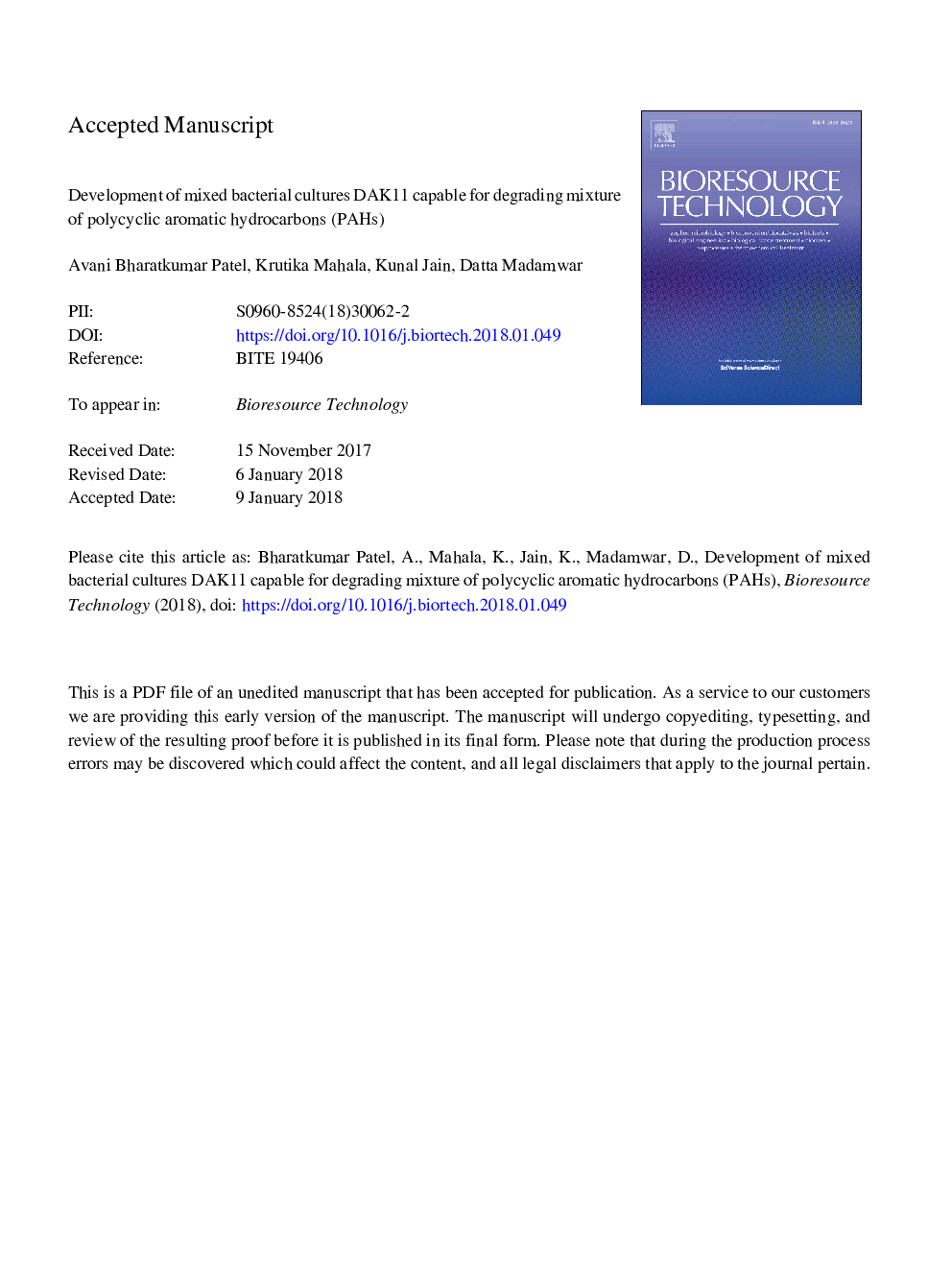| Article ID | Journal | Published Year | Pages | File Type |
|---|---|---|---|---|
| 7068271 | Bioresource Technology | 2018 | 37 Pages |
Abstract
Polycyclic aromatic hydrocarbons (PAHs) are ubiquitous and persistent pollutants having mutagenic and carcinogenic properties. Microbial metabolism is an alternative approach for removal of PAHs from polluted environment. Mixed bacterial cultures DAK11 capable for degrading mixture of PAHs was developed from long term polluted marine sediments. DAK11 was able to degrade 500â¯mg/L of mixture of four PAHs and their degradation efficiency was enhanced by supplementing commercially available NPK fertilizer (0.1%, w/v). Anionic surfactant SDS has enhanced the degradation of PAHs, but DAK11 growth was inhibited in presence of cationic surfactant CTAB. Heavy metals have decreased the rate of degradation, while it was completely inhibited in the presence of Zn2+ and CrO42â (1mM). DAK11 was able to degrade PAHs in the presence of mono-aromatic hydrocarbons, lubricant oil and diesel. Lower molecular weight aromatic and aliphatic compounds were identified using GC-MS during metabolism of mixture of PHAs.
Related Topics
Physical Sciences and Engineering
Chemical Engineering
Process Chemistry and Technology
Authors
Avani Bharatkumar Patel, Krutika Mahala, Kunal Jain, Datta Madamwar,
